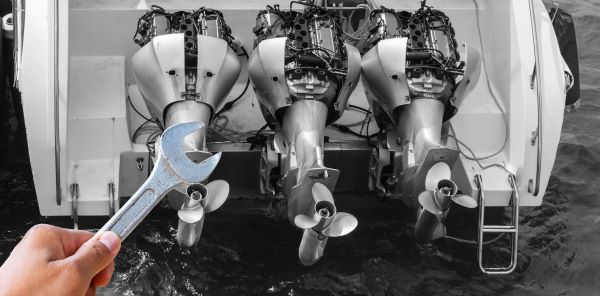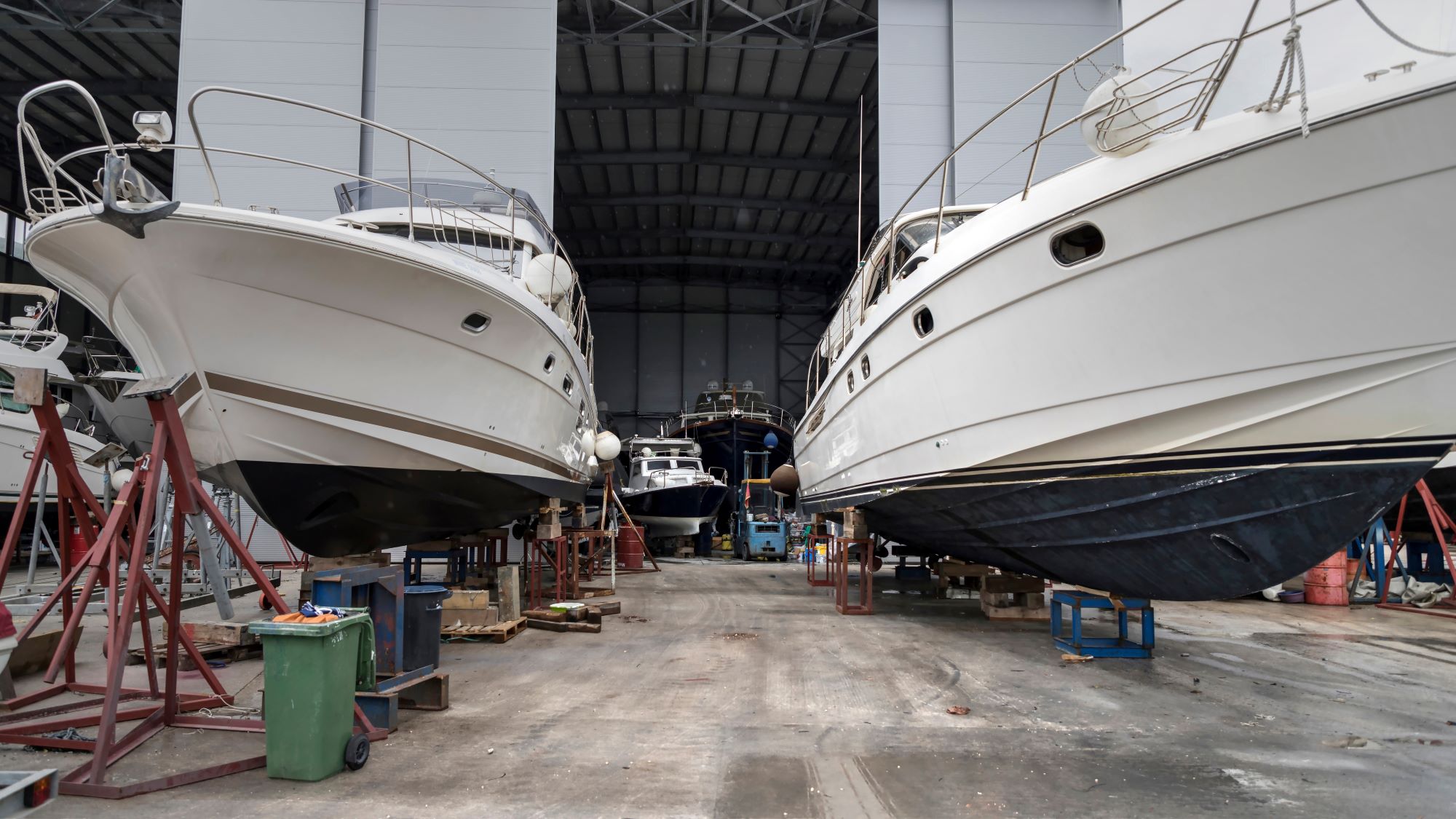Keeping Your Outboard Running Smoothly
Is your outboard motor giving you a hard time starting? Don’t let a stubborn engine ruin your boating adventures. Sound Marine Repair, your trusted source for boat repair in Olympia, offers expert boat motor repair, marine repair, and outboard engine repair services. This blog post will delve into the common culprits behind starting problems in outboard motors and provide valuable insights to help you get back on the water quickly. We’ll explore everything from simple fixes to more complex issues, ensuring you have the knowledge to diagnose the problem or know when to seek the help of experienced technicians.
Understanding the Basics of Outboard Motor Starting Systems
Before diving into troubleshooting, it’s helpful to understand the fundamental components involved in starting an outboard motor. These include the battery, starter motor, solenoid, ignition system (spark plugs, coils, wires), fuel system (fuel tank, fuel pump, fuel filter, carburetor or fuel injectors), and the engine itself (cylinders, pistons, compression). A problem in any of these areas can lead to starting difficulties.
Common Culprits Behind Outboard Starting Issues
Outboard motors, the workhorses of recreational boating, can sometimes be temperamental when it comes to starting. A no-start or hard-start condition can stem from various factors, ranging from simple maintenance oversights to more intricate mechanical failures. Understanding the potential issues is crucial for every boat owner. Some common causes include:
- Fuel System Issues: Problems with the fuel supply, such as old fuel, clogged filters, or a malfunctioning fuel pump, are frequent offenders. Ethanol in fuel can also cause issues by attracting moisture and gumming up the system.
- Ignition System Problems: Faulty spark plugs, ignition coils, or other ignition components can prevent the engine from firing. A weak spark or no spark at all will result in a no-start condition.
- Battery and Electrical Connections: A weak battery or corroded connections can hinder the starter motor’s ability to turn the engine over. Even a slightly discharged battery can struggle to crank the engine, especially in colder conditions.
- Compression Problems: Low compression in the cylinders can make it difficult for the engine to start. This can be caused by worn piston rings, damaged valves, or head gasket issues.
- Mechanical Failures: Issues with the starter motor, wiring harnesses, or other mechanical components can also lead to starting problems. A faulty starter solenoid or a broken starter drive gear can prevent the engine from cranking.
The Importance of Regular Outboard Motor Maintenance
Regular maintenance is paramount for preventing starting issues and ensuring the longevity of your outboard motor. Just like your car, your boat engine requires routine servicing to keep it in excellent condition. This includes:

- Regular Oil Changes: Changing the oil regularly keeps the engine lubricated and prevents wear and tear.
- Filter Replacements: Replacing the fuel and oil filters ensures clean fuel and oil flow, preventing clogs and engine problems.
- Spark Plug Checks and Replacements: Inspecting and replacing spark plugs as needed ensures proper ignition and efficient combustion.
- Fuel System Maintenance: Using fresh fuel, adding fuel stabilizers, and checking for any leaks or damage in the fuel system can prevent fuel-related starting problems.
- Winterization: Properly winterizing your outboard motor at the end of the boating season is crucial for preventing damage and ensuring it starts easily in the spring.
Do You Need Boat Repair Service?
Don’t wait—Get expert help from Sound Marine Repair today!
Troubleshooting Steps for Common Starting Problems
Here are some steps you can take to troubleshoot starting problems in your outboard motor:
- Check the Fuel Supply:
- Ensure you have fresh fuel in the tank. Old fuel can degrade and cause starting problems.
- Inspect the fuel filter for any clogs or debris. Clean or replace it if necessary.
- Check the fuel lines for any kinks or leaks.
- Prime the fuel system by squeezing the primer bulb a few times.
- Inspect the Ignition System:
- Check the spark plugs for wear or damage. Clean or replace them if needed. Look for signs of fouling, burning, or corrosion.
- Ensure the spark plug wires are securely connected.
- If you suspect a problem with the ignition coil, you may need to have it tested by a qualified technician.
- Check the Battery and Electrical Connections:
- Make sure the battery is fully charged. Use a multimeter to check the battery voltage.
- Clean any corrosion from the battery terminals and cable connections. Use a wire brush and a baking soda solution.
- Ensure all electrical connections to the starter motor are secure.
- Check the Engine Compression:
- Low compression can indicate a serious engine problem. This is best diagnosed by a skilled technician using a compression tester.
- Inspect the Starter Motor:
- Check for any loose wires or connections to the starter motor.
- If the starter motor is not engaging, it may need to be repaired or replaced. Listen for clicking sounds, which could indicate a faulty solenoid.
- Regular Maintenance:
- Follow the manufacturer’s recommended maintenance schedule for your outboard motor.
- This includes regular oil changes, filter replacements, and tune-ups.
- Proper maintenance can help prevent many starting problems and extend the life of your engine.
When to Call a Professional: Recognizing the Limits of DIY Repair
While some basic troubleshooting can be done by boat owners, it’s crucial to recognize the limits of DIY repair. Attempting complex repairs without the proper knowledge, tools, and experience can lead to further damage and costly repairs. It’s always best to consult with a qualified marine mechanic for more serious issues.
The Value of Professional Marine Repair Services
Professional marine repair services offer several advantages:
- Expert Diagnostics: Experienced technicians have the knowledge and tools to diagnose complex starting problems accurately.
- Quality Repairs: Professionals use high-quality parts and follow best practices to ensure reliable repairs.
- Preventive Maintenance: Technicians can perform preventive maintenance services to keep your outboard motor running smoothly and prevent future problems.
- Warranty Protection: Many professional repair shops offer warranties on their work, giving you peace of mind.
Choosing the Right Marine Repair Shop in Olympia
When choosing a marine repair shop, consider the following factors:
- Experience and Expertise: Look for a shop with experienced technicians who specialize in outboard motor repair.
- Reputation: Check online reviews and ask for recommendations from other boat owners.
- Certifications: Ensure the technicians are certified by recognized organizations.
- Customer Service: Choose a shop that provides friendly and helpful customer service.
Get Back on the Water with Sound Marine Repair’s Outboard Motor Services
Starting problems in outboard motors can be frustrating, but understanding the potential causes and taking proactive steps can help you avoid them. Regular maintenance, proper storage, and prompt attention to any warning signs are key to keeping your outboard motor running smoothly. If you’re in the Olympia area and need expert assistance with your boat motor, marine, or outboard engine repair, contact Sound Marine Repair today. Their team of skilled technicians is dedicated to providing excellent service and getting you back to enjoying your boating adventures. For all your boat repair Olympia needs, Sound Marine Repair is your trusted partner for reliable and top-quality services.
Do You Need Boat Repair Service?
Don’t wait—Get expert help from Sound Marine Repair today!

